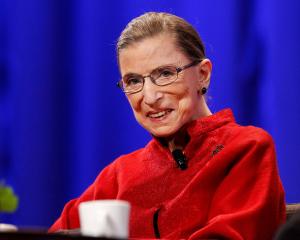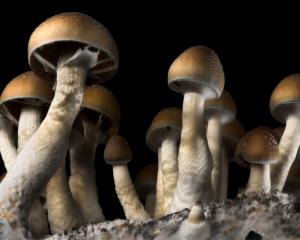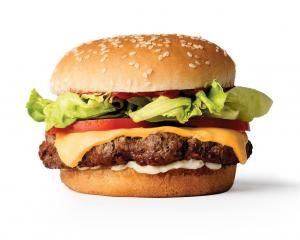
After finding this out, my mother who is a farmer, is feeling pretty outraged that in New Zealand farmers are the ones under attack for climate change. She is vowing to fly less and write letters of concern - why is the New Zealand Government so focused on agriculture while tourism flies under the radar - so to speak.
My mother has a point, according to data analysed by Dr Frank Mitloehner, a professor of air quality at the University of California, Davis. He has reviewed the full carbon life cycle of livestock products and transportation and has published in peer-reviewed scientific journals.
According to an interview in the AgFunder, ''when it comes to some consumers' recent decisions to go vegetarian or vegan in an effort to save the planet, Dr Mitloehner wishes they had a more realistic understanding of the environmental impact that their personal diet actually has on the environment''.
''If you decide to start being a vegan in 2019, the carbon savings and greenhouse gas savings that you would create for that year equate to the greenhouse gases emitted for a one-way flight from the United States to Germany. This is not nothing, but it is not as much as the media wants us to believe.
It's not fair and it's not getting us where we need to go, which is finding ways to reduce emissions from fossil fuel.'' (https://agfundernews.com/alternative-protein-startups-lets-get-the-facts...).
Sobering indeed and such data has led to a movement ''flygskam,'' or ''flight shame''. Originating from Sweden, flygskam is the feeling of being embarrassed or ashamed to take the plane because of the environmental impact.
The movement is changing the way Swedes travel: Swedish Railways have found that 37% of survey respondents are choosing to travel by rail instead of air, compared with 26% last autumn and 20% in early 2018.
Swedish airlines are seeing a concurrent reduction in travellers and numbers were down 15% last April (World Economic Forum). This movement is not confined to Sweden.
Atmosfair is a German public interest group that recommends limiting your air travel to about 3100 miles a year if you live in Los Angeles, that's one round-trip flight to Mexico City. For a New Zealander, that equates to 4989 kilometres.
Last week, when I travelled to Melbourne and back, I almost used this annual allowance.
Perhaps Air New Zealand CEO Christopher Luxon has seen the writing on the wall and has timed his exit nicely? With data like these, what is the future of New Zealand's tourism industry? Transport operators are working on alternative fuels to reduce the carbon load of air travel, but it does beg the question - why are so many New Zealanders laying so much of the climate change blame at farmers' doors?
I have just come back from Australia, working with Australian agriculturists. Australian agriculture is under serious climatic challenge already. As a country they have heat and water challenges which are truly frightening.
Every time I visit Australia, I am stunned by the amount of support their farmers have in the community and in the media. They are valued as food producers and they are supported financially through science, research and development to work through environmental challenges.
New Zealand farmers know they have improvements to make and many of them are doing all that they can to make them. Yet many farmers feel constantly under attack and isolated by the New Zealand media, governments and urban populations. Why is there such a difference in how we treat farmers, compared to the Australians?
Perhaps it's time we all had a look in the mirror. It is likely that day by day, there is nothing we do that contributes more to climate change than flying. Farmers are asking for some perspective and it's time for us to start listening.
-Anna Campbell is managing director of AbacusBio Ltd, a Dunedin based agri-technology company.
Comments
In the 1950’s when scientists with integrity realised smoking was the major cause of lung cancer and a leading cause of heart disease we saw the tobacco industry pay researchers to publish misleading information to confuse the public and sustain profitability of the tobacco industry. We are now seeing the meat and dairy industry using exactly the same tactics. The only difference in the two situations is that the tobacco industry just killed millions of smokers. The meat and dairy industry are killing the planet. There is no climate debate amongst scientists of integrity.
And so the blame game starts.
Nelson has its protesters shaming drivers of cars where they are the sole occupant.
Schools are installing eco-anxiety in our children.
Politicians are encouraging children to embrace emotive protest over rational education.
The media is blaming weather events on you.
The DCC believes sea levels will rise two meters in the next 80 years, unless we all change our “ways”.
Mass hysteria is on its way.
Neuroticism Personality types lead our future.
Logic, courage, work, faith, pragmatism, all give way to the new religion, of doom.
And dreaming.
Dreamers are those who believe No Change will be fine.
Case in point here Eyes Wide Open.
I read the recent debate about expanding Wanaka airport and thought it absurd to be planning for increased visitor numbers given the massive carbon footprint. The NZ economy is in for an estimated $50 billion hit over the next few years because of this crisis which will lead to very divisive politics.
Anna Campbell is thoroughly ethical.
You lot could go by prop - Fokker Friendships.












